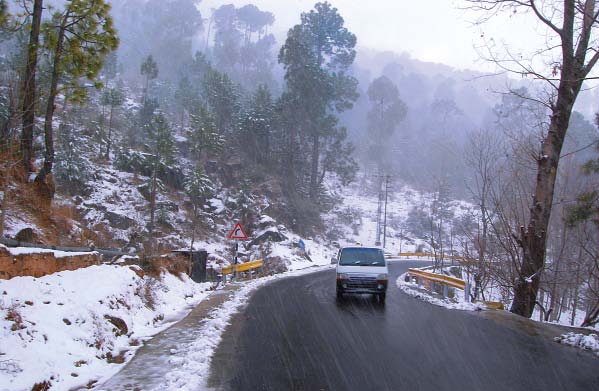Murree Snowfall Season Ends Early Amid Drought
The drought has resulted in significant financial losses, with investments worth millions going down the drain, and the shutdown of tourist facilitation centers has further exacerbated the situation, leaving businesses struggling to recover from the loss of revenue.

Murree's snowfall season has come to an abrupt end due to a severe drought, with authorities deciding to conclude the emergency by February 28, resulting in significant economic losses for businesses relying on tourism.
The minimal snowfall this season has caused a substantial setback for traders and shopkeepers from major cities, with losses worth millions. The reduced snowfall has disrupted the tourism cycle, leaving businesses struggling, and temporary vendors have seen a slump in sales. The dry season has also affected the economy, lowered underground water levels, and reduced dam reserves in the Rawalpindi division.
For the first time in years, Murree did not experience traffic congestion due to excessive visitor inflows, and the lack of snowfall has discouraged tourists from across the country. The shutdown of 19 tourist facilitation centers along the Rawalpindi-Murree route has further exacerbated the situation. All Civil Defence volunteers stationed in Murree have returned to Rawalpindi, and schools and colleges in the area will reopen on March 1.
The Meteorological Department predicts occasional rain and light snowfall in Murree over the next month, but overall, the weather will remain stable. This year, Murree recorded the lowest snowfall in Pakistan's history, causing a sharp decline in tourist arrivals, with many opting for alternative destinations such as Kalam, Swat, and Gilgit-Baltistan.
As the western weather system brings rain and snowfall to various regions, authorities have warned of travel disruptions and advised tourists and residents to remain cautious, particularly in hilly regions prone to snowfall. The economic impact of the drought and reduced snowfall will likely be felt for some time, affecting businesses and communities that rely on tourism.